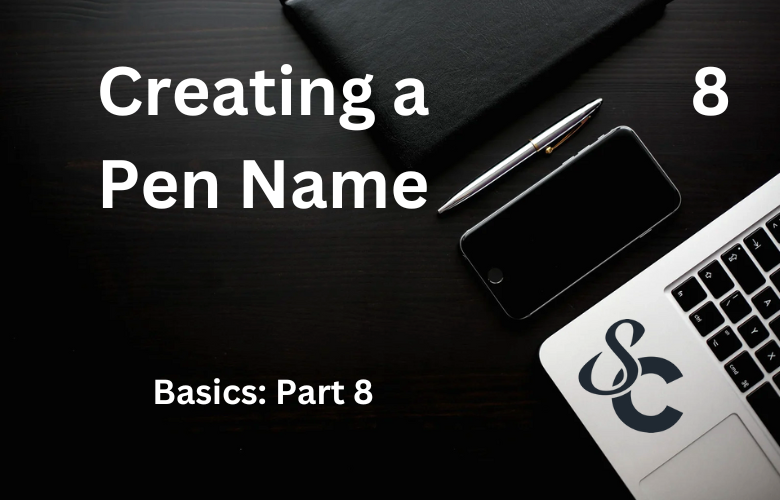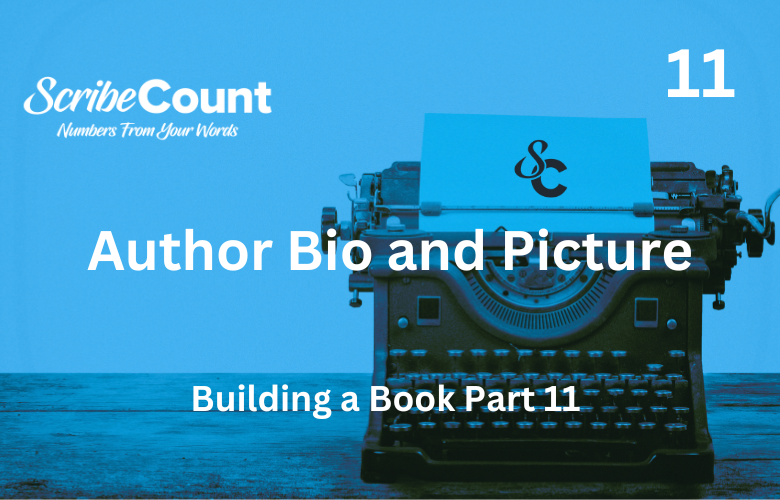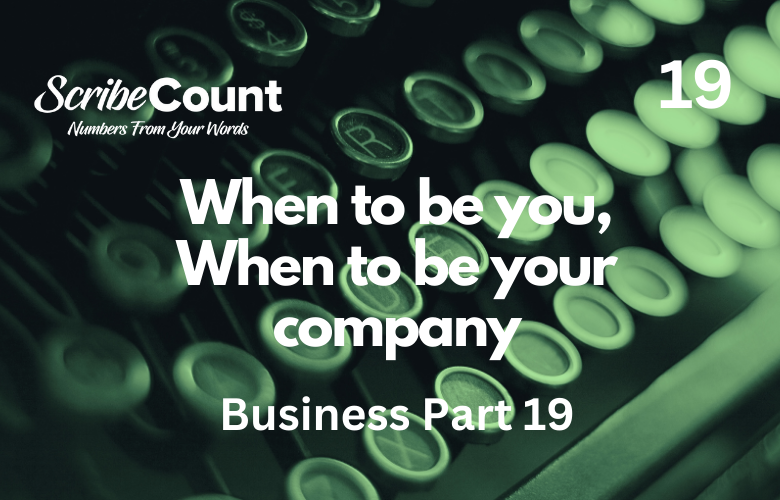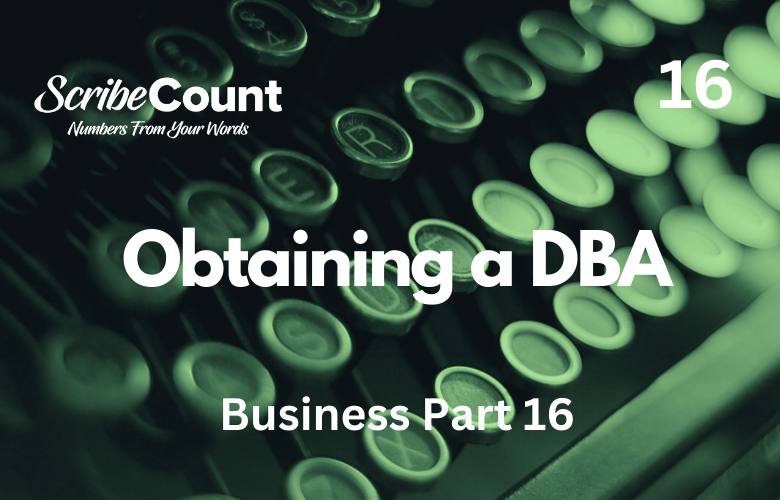Pen Names. What are they and why do authors use them?
What is a Pen Name?
A pen name, otherwise known as a nom-de-plume, alias, fake name, literary double, or nickname, is a pseudonym or variant form of their real name that authors use when they don’t wish their real name to be known. This is done for a variety of reasons:
Privacy
Many authors simply wish to keep their public life separate from their private life. They may write about sensitive subjects that could result in retaliation. They may write as a whistleblower or as a “tell-all” author exposing celebrity dirt. Whatever the subject matter the author will wish to protect themselves and their families from corporate backlash or rabid fans. They may write about subject matter that their family may disapprove of and simply wish to avoid the family drama. Or they just prefer to avoid the spotlight and maintain a more private existence. Pen names work to accomplish all of this.
Avoiding Confusion
Some authors write in more than one genre and adopt a pen name to separate them and avoid any confusion among their readership. Their real name may be the same or similar to a famous celebrity or world figure.
Marketing and Branding
The author's real name may be difficult to remember or spell. It may not fit the genre they are writing in. Their name might be too long to fit neatly on the cover of a book.
Overcoming Gender Bias
Historically, the publishing world has been a male-dominated one. To avoid this, female authors would adopt a masculine pen name or simply use initials in place of their first name. Although less of an issue today JD Robb and JK Rowling are perfect examples of this continuing practice.
Personal Preference and Creativity
There are no rules regarding the use of a pen name. Authors are free to do so for any of the reasons listed here or for no reason at all. Many do so for fun or as one more way to express their creativity. Whether it be for branding purposes or just for privacy.
Regardless of why one chooses to use a pseudonym, figuring out how to come up with a pen name can play an important part in your book’s marketing. Many authors use pen names when publishing their first novel to maintain anonymity and navigate different genres or marketing challenges.
Is using a Pen Name legal?
Yes. It is perfectly legal to publish your work using a pen name. In many aspects of publishing it can not only be a benefit but includes several business advantages. There are no roadblocks or legal hoops to jump through if you wish to use a pen name. All of the major book publishing platforms allow authors to use pen names or their own names.
However, pen names fall under the legal pretense of Intellectual Property, and there are several facts about using pen names that new authors should be aware of:
Authors are allowed to register copyrights of their created works under a pen name.
This comes with two caveats:
It will reduce the duration of the copyright
It will be harder to prove you own the copyrighted material should you need to defend it.
We discuss copyright and how to prove it in another post.
Authors are allowed to Trademark their pen name.
This is often confusing as trademarking your real name is
generally not allowed. With pen names, however, there is some gray area. The
name must have a level of uniqueness in order to qualify. Dr. Seuss is a good
example of a trademarked pen name. Visiting the Dr. Seuss website will give you an immediate lesson on the many ways to leverage a trademark.
Authors are allowed to (technically) sign contracts using their pen name.
While it’s not often done, nor is it recommended by IP lawyers, it is technically legal to sign official documents using your pen name. Doing so WILL NOT shield you from any legal liability. Your pen name will not protect you from defamation lawsuits, taxes, breaches of contract, or any other liabilities. Authors should not view their pen names as a legal cloak, if you violate the rules you and your pen name will still be held responsible.
Choosing a Pen Name
Selecting a pen name is a task that all aspiring authors should devote a large amount of time and research towards. The name you choose will forever be attached to the content you produce. This relates to both your branding and your author platform, which are the foundations on which you will build your author career. You’ll need a name that works for several different purposes and in several different environments. Choose your name wisely as it's going to represent you and your business for a long time.
We’re not naming a boat here.
There are several things to keep in mind when selecting a pen name. We’ll walk our way through them here in the order in which you should approach them.
First, what not to do?
While it should be obvious, we feel the need to say so here.
Never use another author's pen name or real name. Period.
Freeloading, Mooching, Sponging, whatever you label it, the benefit you might gain by doing so will be temporary at best and almost always viewed negatively. In the world of publishing it’s especially frowned upon. You don’t want to end your career before it has even begun.
The ONLY exception to this rule is if you have a legal agreement allowing you to take over the pen name from the previous author or authors or you have joined a group of ghostwriters all writing under the same name.
This also pertains to celebrities, athletes, musicians, politicians, and anyone else with a famous name. You want to avoid any association with someone else's fame as much as possible. Many of these people have trademarks protecting their names from unauthorized use by others attempting to capitalize financially on their fame. This is why celebrities trademark the names of their children before they are even born. You don’t want to start your author career with a court date. This may not happen right away, but you should ask yourself if you want to take down all of your books a few years from now and republish them under a new name. Not only would this be costly, but you would also lose all the work you have done toward building your author platform up to that point.
There are business reasons for avoiding this as well.
You wish to avoid any legal ramifications.
You will be unable to obtain the domain name/URL associated with that name.
You will find it impossible to be seen via Search Engine Optimization.
A large part of book marketing pertains to ranking on Amazon and Google. If you choose a celebrity name their name will appear before yours. Readers searching for you will have to click through several pages before seeing your internet presence. This alone can stop your career from taking off.
"The best place to hide a dead body is on page two of Google" - Unknown
Your pen name is something you will strive to build into a huge marketing force, and as such it will need to accomplish several things. Chief among these is being your author brand. It will grace the cover of every book you write. It will be the domain name for your website. It will identify the genre and/or topic of your books. It will identify your age and to a lesser extent your intended audience. Your pen name will become synonymous with everything you do.
Keep this in mind as
we move on.
How to choose a pen name?
Start by identifying the right age for your pen name.
Let’s say for a moment that you’re female and you write period romance novels set in the 1700’s. To subconsciously speak to your potential audience you might want to choose a pen name that was popular in that era.
Try this: Google “popular female names in the 1700s”
When I did so I found this: “Along with Elizabeth and Mary, other girl names from the 1700s still popular today include Abigail, Amy, Caroline, Charlotte, Hannah, Katherine, Molly, and Sabrina. Unique colonial-era names for girls include Cleda, Hitty, Nonie, Thirza, and Winnet.”
The names that are still popular today would be good choices for an author's pen name writing in that era.
Another way to do this is to choose a name that fits the age of your target audience. If you are writing for young adults you might research names that were popular twenty to twenty-five years ago.
To make this process easier there are dozens of Baby Name websites out there. Pampers of all places has an excellent tool. BabyCenter and Namebaby are two others. Each of these websites have filters to help you select the right name.
Tip: These websites work well for naming your characters too!
Choose a name that fits your genre.
If you are writing political thrillers you wouldn’t choose a name like Handy Glydenbollocks as thrillers, much like mystery and horror, tend toward very masculine names. But if you were penning humorous erotica it just might work.
(My apologies to all the Handy Glydenbollocks out there.)
Another example might
be a Fantasy Author using a name such as Freydis Ragnarsdottir as the Norse
influence would fit the book. But be careful. "Freydis" may wish to write cozy
mysteries someday. When that day comes she may wish to have a second pen name,
which would mean losing some of the branding power she has built up already.
The key takeaway here is that your pen name should resonate with your target audience while also working to build your brand. When selecting a name take into account your genre's feel and how it will appeal to your readers.
Whatever you choose it should be easy to spell, pronounce, and remember. If you know you will write nothing but Fantasy your entire career then you can be a bit narrower in your selection. If unsure, then choose something that will work with a broader audience.
Indexing
Author names are highly indexable; this means that the words within your pen name will show up better in searches. So, if your pen name has a word within it that’s also a target keyword, it can increase your book's rankings on Amazon.
For example, “Derek Hunter” could work well for a vigilante story, as readers might search for “hunter” when looking for vigilante killer-themed books. This is obviously more of a challenge, but one that can pay off handsomely if done correctly. Make sure to do some keyword research and find terms that you can use as a last or middle name as they will increase your book's reach and thus its sales.
Pen Name Generators
If you’re still having a hard time coming up with a pen name on your own you can always turn to technology for a helping hand. There are several pen name generators out there that will assist you in this endeavor. Some are thorough, some are fantastic, some are evil.
This creative tool is by far the most fun of the ones I have listed here. Choose from such options as Dark Elf Names, Evil Sounding Names, Goblin Names, Lovecraftian Names, Pirate Ship Names, and of course, Vampire Names. The only thing evil about this tool is the amount of time you’ll waste there. Great for character names as well if you’re a fantasy writer.
This pseudonym generator does exactly what its name says. It will even allow you to specify the gender and culture of the person you are creating. It's a bit too thorough as it will not only generate legitimate names, but also create a real address, phone number, occupation, and even a fake credit card number. This is a great help when filling out those character data sheets or if you need to suddenly flee the country.
This is another name generator that can easily claim hours of your time. Thousands of names to choose from, all of them categorized into easy-to-find segments. Drill down by gender with a click of a button and then combine names to suit your own style. (My dragon name is Ikis, Lord of the Black)
Masterpiece Pen Name Generator – This is the most detailed of the generators. This takes your name as well as several other details (be careful, some of these are security words) and then generates names based on your selections. Options include Dragon, Giant, Alien, and a slew of others. You also get multiple genre options to choose from. (My alien name is Parbacca Blaeseverse).
Reedsy offers a free Pen Name Generator that’s first-rate. Pick a first letter, gender (or neutral), and spoken language and it will do the rest.
Anagrams
If you STILL can’t find a pen name you like you might consider using an Anagram instead.
Anagram makers use the letters of a name, word, sentence, or phrase to create a pen name with hidden meaning.
This tool was the best we found: Anagram Generator
My alter ego is now Orlando Ward.
So you have a name in mind. Now what?
By now you have hopefully come up with a few names, considered the criteria we’ve discussed so far, and are ready to adopt your new secret identity.
Not so fast, there’s still some work to be done.
Will the name you’ve chosen work?
Google.
The first way to check the name is a simple Google search. This should tell you if the name is that of someone famous or nefarious. While having the same or similar name as a celebrity is bad, having the same name as a serial killer is even worse. If the first page of Google's results are absent of both, you can safely move on.
T.E.S.S.
TESS is the name used for the United States Patent and Trademark Office’s Trademark Electronic Search System. Any existing trademarks using the name you want to use will appear in the system. Using someone else’s registered trademark will earn you a fast cease-and-desist letter or worse. TESS is not a step you want to skip.
Siteground
A good pen name is useless without the internet space it's tied to. Eventually, you will need a website to both promote and sell your books directly from. You’ll want to secure that URL now. To check and see if the URL associated with the name you have chosen is already taken we suggest using SiteGround.
The process is simple:
Type the pen name you're considering into the domain search bar.
Change the extension if you’d like to try something other than a .com. (Over the last few years, .com sites have become harder to secure, as a result, there has been a surge in popularity for new extensions such as .org, .edu, and .net)
Click ‘Search'.
Siteground will tell you if the name is available or not and for what price you can obtain it. If it is already taken Siteground will list similar names that are not.
TIP: Be ready to buy before you go searching. There are people out there known as cybersquatters. They monitor search frequencies and if they notice a particular domain being repeatedly searched they are likely to purchase it themselves and then mark up the price. If your first choice is available we suggest you lock it up quickly. Mulling your decision over for a few days will likely end with you losing it as an option.
Most (available) domains can be had for around $15/year. Those that aren’t available range from $100 to $1,000 or more.
TIP: Use the auto-renew option. There’s nothing worse than having your domain expire only to find out someone bought it and is now holding it hostage for thousands of dollars.
Social Media
If Google and TESS are clear and SiteGround says the domain you want is available the next step is to secure the Social Media accounts related to that name. We suggest you sign up for Facebook, Instagram, YouTube, Pinterest, and TikTok with your chosen pen name as soon as you have purchased the domain name. Do this even if you don’t intend to use the accounts until later.
Other related steps.
Copyright and the use of your pen name
If you plan to set up your own publishing company you’ll want to do so in both your real name AND your pen name. You’ll need to do the same when you open bank accounts or other accounts using your pen name. Most authors choose sole proprietorships or LLCs, but you should discuss this with your financial advisor and attorney before proceeding to make sure you’re doing what’s best in your specific situation. We talk more in-depth about this process in our Business Section.
Your pen name should appear on the copyright page of your books and in the footer of your website under any content that you have created like this:
© 2017 [your pen name])
(To insert the copyright symbol, press Ctrl+Alt+C. To insert the trademark symbol, press Ctrl+Alt+T.)
If you plan to receive payments under your pen name you will
need to apply for a Fictitious Business Name Statement (FBN Statement). This is
a form of DBA (doing business as) statement that some states require. You may
have to add a qualifying word, like “books”, “author”,
or “publications” after your name when setting
this up. These requirements differ by state and are too numerous to list here.
Just know that the sales platforms will make payments to the account owner's
name on your account. You’ll need to check each platform's process to determine
what is required.
If you are working with an agent and/or publisher you will need to inform them in writing of your real name for contracts and tax purposes.
If you have completed the steps above it is now safe for you to use your pen name on your book cover.
Conclusion
As you now know, choosing a pen name is not something to do on a whim. Your pen name will be a large part of your publishing journey and have a great impact on your marketing as well as defining you as an author. Pen names are a foundation block of your author platform and not something you will want to start over once you’ve begun. Choose your pen name sensibly and then leverage that name into a successful brand.
Hope this helped to get you one step closer to fulfilling your publishing dream.
Sincerely,
Ikis, Lord of the Black




